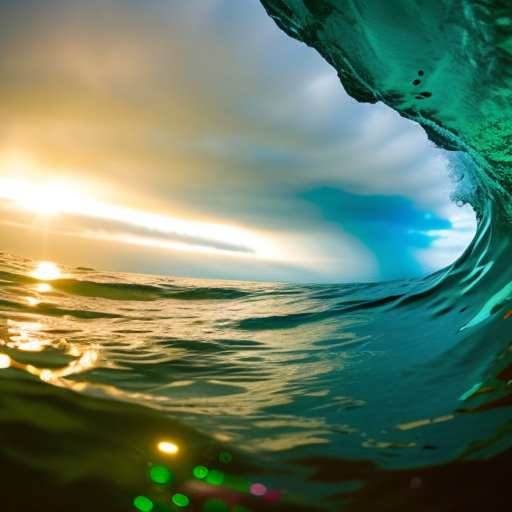Summary:
Marine chemistry is the study of chemical processes and interactions in the world’s oceans. It encompasses a wide range of topics, including the composition of seawater, the cycling of elements and nutrients, and the impact of human activities on marine ecosystems. Understanding marine chemistry is crucial for predicting and mitigating the effects of climate change, ocean acidification, and pollution on the health of our oceans.
Composition of Seawater:
Seawater is a complex mixture of dissolved salts, gases, and organic compounds. The most abundant elements in seawater are sodium and chloride, which combine to form salt. Other important elements include magnesium, calcium, and potassium. The concentration of these elements varies depending on factors such as temperature, salinity, and depth. The pH of seawater is slightly alkaline, typically ranging from 7.5 to 8.4.
Biogeochemical Cycling:
Marine chemistry also focuses on the cycling of elements and nutrients in the ocean. Elements such as carbon, nitrogen, and phosphorus play a crucial role in supporting marine life. Carbon is exchanged between the atmosphere and the ocean through processes like photosynthesis and respiration. Nitrogen and phosphorus are essential for the growth of phytoplankton, which form the base of the marine food web. Understanding these cycles is important for predicting the response of marine ecosystems to environmental changes.
Ocean Acidification:
One of the major challenges facing marine chemistry is ocean acidification. As carbon dioxide (CO2) levels in the atmosphere increase, a significant portion of it is absorbed by the ocean, leading to a decrease in seawater pH. This decrease in pH makes the water more acidic, which can have detrimental effects on marine organisms, particularly those with calcium carbonate shells or skeletons, such as corals and shellfish. Ocean acidification can disrupt the balance of marine ecosystems and impact the livelihoods of communities dependent on fisheries.
Impacts of Pollution:
Marine chemistry also investigates the impact of pollution on the health of marine ecosystems. Pollution from sources such as industrial waste, oil spills, and agricultural runoff can introduce harmful chemicals and toxins into the ocean. These pollutants can accumulate in the tissues of marine organisms, leading to bioaccumulation and biomagnification. They can also disrupt the reproductive and immune systems of marine organisms, causing population declines and ecosystem imbalances.
Climate Change:
Understanding marine chemistry is crucial for predicting and mitigating the effects of climate change on the oceans. Rising temperatures can lead to changes in ocean circulation patterns, affecting the distribution of nutrients and the productivity of marine ecosystems. Climate change can also alter the chemistry of seawater, leading to increased ocean acidification and decreased oxygen levels. These changes can have far-reaching consequences for marine biodiversity and the services provided by the oceans, such as food production and climate regulation.
In conclusion, marine chemistry is a multidisciplinary field that plays a crucial role in understanding the chemical processes and interactions in the world’s oceans. It encompasses the study of seawater composition, biogeochemical cycling, ocean acidification, pollution impacts, and climate change. By gaining a deeper understanding of marine chemistry, scientists can better predict and mitigate the effects of human activities on the health of our oceans, ensuring their long-term sustainability.












